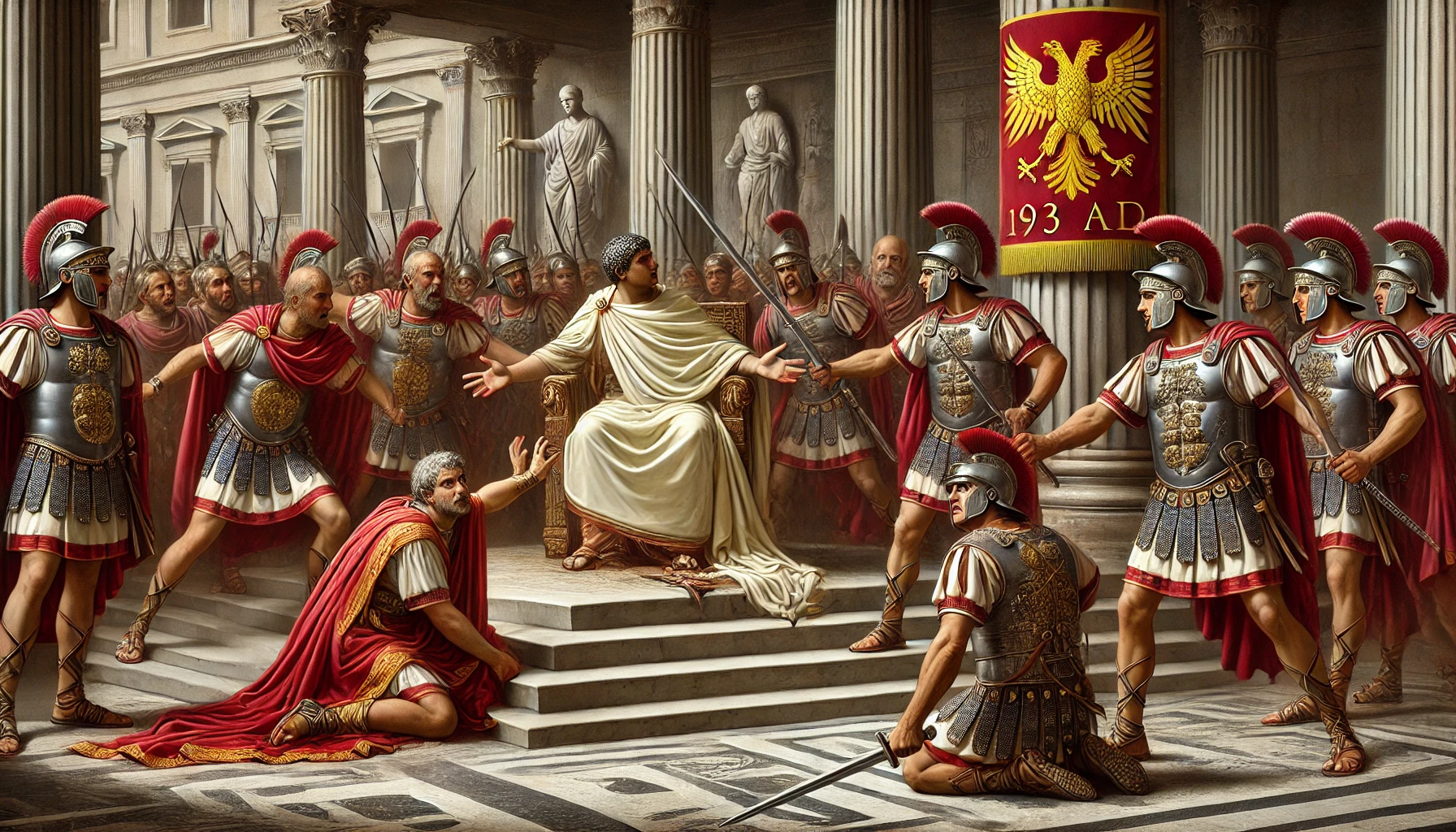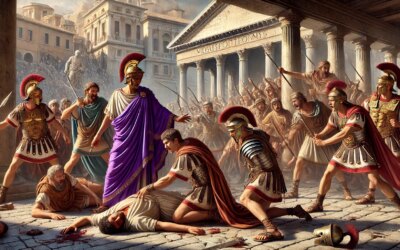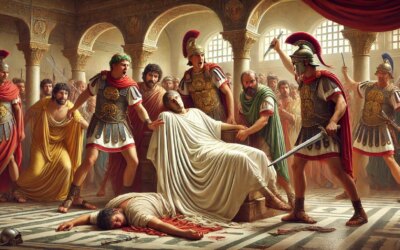From Discipline to Death: The Brief Reign of Pertinax
The assassination of Emperor Pertinax on March 28, 193 AD, marked a turning point in the Roman Empire’s turbulent Year of the Five Emperors. A man of discipline, integrity, and senatorial support, Pertinax came to power with noble intentions but met a violent end only 86 days later. His death at the hands of his own protectors—the infamous Praetorian Guard—exposed the brutal realities of imperial politics and the decay of Rome’s highest institutions.
The Rise of a Reluctant Emperor
Born in 126 AD to a freedman in Liguria, Publius Helvius Pertinax rose through military and administrative ranks by merit and discipline. He held numerous provincial commands and served as city prefect of Rome before being appointed consul. When Emperor Commodus was assassinated in a palace conspiracy on December 31, 192 AD, the Senate turned to Pertinax, a figure of order amid chaos.
Pertinax accepted the throne with hesitation, fully aware of the dangers ahead. His rule promised a return to senatorial authority, financial austerity, and moral restoration after the erratic and despotic reign of Commodus. His approach, however, was too sudden—and too severe for Rome’s entrenched elites and military power brokers.
Clashing with the Praetorian Guard
Pertinax immediately sought to reform the imperial finances, slashing court expenses and restoring property confiscated under Commodus. Most controversially, he imposed strict discipline on the Praetorian Guard, the elite unit tasked with protecting the emperor. These soldiers, long accustomed to indulgence and immunity, found their privileges curtailed.
Pertinax promised them a generous donative (bonus) but failed to pay the full amount. Dissatisfaction grew. Rumors circulated that the emperor’s rule would soon spell an end to their perks. Tension simmered until, on the morning of March 28, a group of around 300 guardsmen broke from their barracks and marched on the imperial palace.
The Final Confrontation
Pertinax, informed of the advancing soldiers, refused to flee. “An emperor must die with dignity,” he reportedly said. Meeting the intruders in the palace courtyard, he attempted to reason with them—reminding them of their oath, pleading for the stability of Rome, even offering to abdicate. But the Guard, driven by anger, greed, and betrayal, would not be swayed.
What followed was chaos. The emperor was surrounded and struck down. According to Dio Cassius, a historian and senator who lived through the era, Pertinax fell under a flurry of blows, pierced by numerous swords. His head was severed and paraded on a spear—an image that shocked even the jaded citizens of Rome.
The Aftermath: Selling the Empire
The assassination sent shockwaves through the empire. In its aftermath, the Praetorian Guard did something unprecedented—they auctioned off the imperial throne to the highest bidder. The wealthy senator Didius Julianus won, promising 25,000 sesterces to each guard. The transaction turned the principate into a marketplace, sparking disgust across the empire.
Provincial legions in Syria, Pannonia, and Britain declared their own candidates, including Septimius Severus, who would eventually march on Rome, execute Julianus, and restore imperial control. But the precedent had been set: the throne could now be bought—and the guards could be kingmakers or executioners at will.
Pertinax Remembered
Despite his short reign, Pertinax was remembered with respect by many Romans. The Senate deified him posthumously, and Septimius Severus later adopted him into the imperial line, presenting himself as his avenger and heir. His name lived on as a symbol of virtuous rule cut short by corruption and violence.
Modern historians often contrast Pertinax’s idealism with the brutal realism of Roman politics. His fate illustrates the fatal gap between philosophical governance and military power in the late empire. In attempting to restore the Republic’s values, Pertinax exposed the empire’s most dangerous truths.
A Lesson in Imperial Fragility
The assassination of Pertinax remains one of the starkest episodes of Roman history—a moment when ideals met swords, and when the institutions of state crumbled under the weight of unchecked ambition. It reminds us that power, once bought or stolen, becomes a weapon as much as a crown. For all his virtue, Pertinax learned too late that Rome was no longer ruled by principle—but by the price its soldiers could demand.






